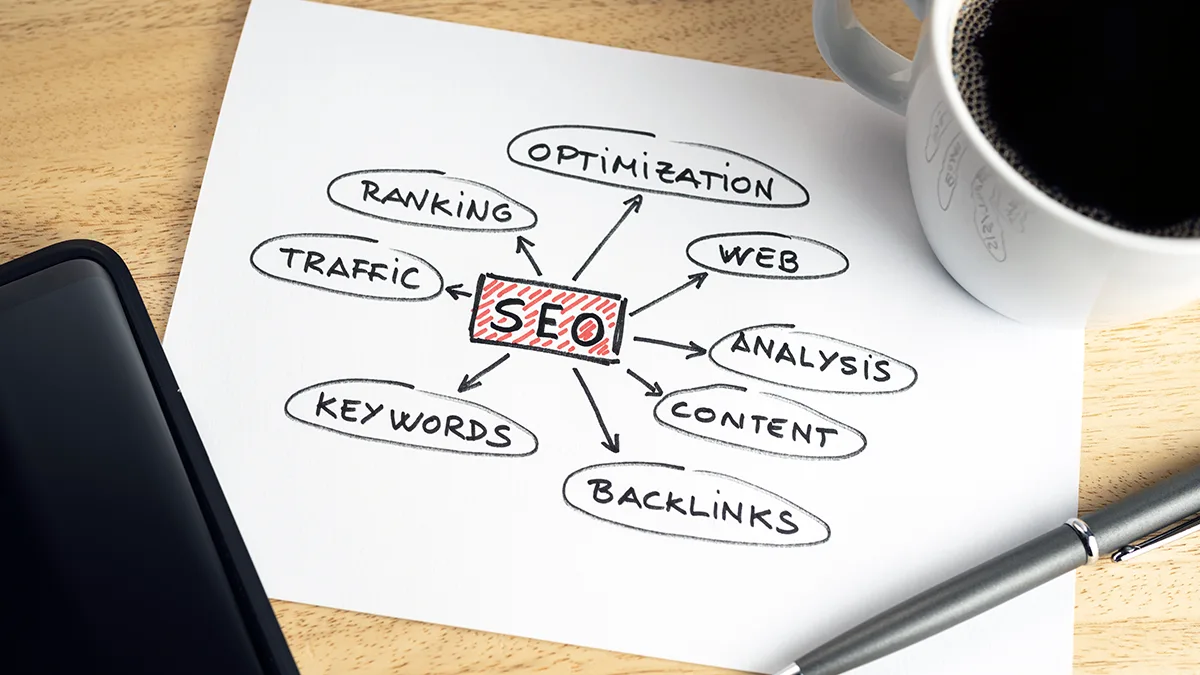B2B SEO in London: How Our Agency Delivers Results for Service Companies. Helping service-based businesses…

Introduction to AI in SEO
Search Engine Optimization (SEO) is a critical component of digital marketing, aimed at improving a website’s visibility on search engine results pages (SERPs).
By optimizing various aspects of a website, businesses can attract more organic traffic, ultimately increasing their online presence and conversion rates.
Historically, SEO techniques have evolved from keyword stuffing and link farming to more sophisticated practices involving high-quality content creation, user experience enhancement, and technical SEO improvements.
Introduction to AI in SEO
In recent years, the advent of Artificial Intelligence (AI) has revolutionized the SEO landscape. AI algorithms, such as those used by search engines like Google, are capable of processing and analyzing vast amounts of data with remarkable speed and accuracy.
This capability allows AI to identify patterns, predict outcomes, and provide actionable insights that can significantly enhance SEO strategies.
One of the primary advantages of integrating AI into SEO is its ability to deliver personalized search experiences. AI can analyze user behavior, preferences, and search queries to tailor content that meets specific user needs.
This not only improves user engagement but also increases the likelihood of higher rankings on SERPs. Additionally, AI-powered tools can automate routine SEO tasks, such as keyword research, content optimization, and performance tracking, thereby freeing up valuable time for marketers to focus on strategic planning and creative activities.
Staying ahead of SEO trends
Moreover, AI’s predictive capabilities play a crucial role in staying ahead of SEO trends. By analyzing historical data and current market trends, AI can forecast which keywords and content topics will likely gain traction in the future.
This enables businesses to proactively adjust their SEO strategies and maintain a competitive edge in their industry.
In summary, the integration of AI in SEO provides innovative solutions to enhance online visibility and effectively reach target audiences. As AI continues to evolve, its impact on SEO will undoubtedly become more profound, offering new opportunities for businesses to optimize their digital marketing efforts and achieve long-term success.
AI-Powered SEO Tools and Techniques
In the realm of search engine optimization, artificial intelligence (AI) has emerged as a transformative force, offering a suite of tools and techniques designed to enhance various SEO strategies.
AI-powered tools leverage advanced technologies like natural language processing (NLP), machine learning algorithms (ML), and sophisticated language models (LM) to streamline and optimize SEO efforts.
One of the primary applications of AI in SEO is keyword research. Tools such as Google’s RankBrain utilize AI to understand and interpret search queries, even those with complex or ambiguous language.
By analyzing vast amounts of data, AI can identify relevant keywords and predict which terms will drive the most traffic to a website. Similarly, platforms like SEMrush and Ahrefs offer AI-driven keyword research features, providing insights into keyword difficulty, search volume, and competitive analysis.
Content creation and optimization
Content creation and optimization are other areas where AI shines. NLP and ML algorithms can analyze top-performing content to identify patterns and trends, helping businesses create high-quality, relevant content that resonates with their target audience.
AI-powered content optimization tools can suggest improvements, such as keyword placement, readability enhancements, and meta tag adjustments, ensuring that content is both user-friendly and search engine-friendly.
Competitive analysis is another critical component of SEO that benefits from AI. Tools like Ahrefs and Moz use AI to monitor competitors’ websites, track their rankings, and analyze their backlink profiles.
This data allows businesses to understand their competitors’ strategies and identify opportunities to improve their own SEO performance. By leveraging AI, companies can stay ahead of the competition and make data-driven decisions.
Technical SEO
Technical SEO, which involves optimizing the technical aspects of a website to improve its search engine rankings, is also enhanced by AI.
Machine learning algorithms can crawl websites, identify issues such as broken links, slow loading times, and mobile optimization problems, and provide actionable recommendations.
This automation saves time and ensures that technical SEO tasks are addressed promptly and effectively.
In conclusion, AI-powered SEO tools and techniques offer significant advantages for businesses looking to improve their search rankings.
By utilizing tools like Google’s RankBrain, SEMrush, Ahrefs, and Moz, businesses can automate and enhance their keyword research, content creation, competitive analysis, and technical SEO efforts, ultimately driving more organic traffic and achieving better search engine visibility.
Benefits of Using AI in SEO Strategies
Integrating AI into SEO strategies offers a multitude of benefits that can significantly enhance the overall effectiveness of your digital marketing efforts. One of the primary advantages is the ability of AI to perform more accurate data analysis.
AI algorithms can process vast amounts of data quickly and efficiently, identifying patterns and trends that might be missed by human analysts. This leads to more informed decision-making and the development of targeted SEO strategies that are grounded in robust data insights.
Another key benefit is the improvement of user experience. AI-powered tools can analyze user behavior and preferences, allowing businesses to tailor their website content to meet the specific needs and expectations of their audience.
This personalization can lead to higher engagement rates, as users are more likely to interact with content that feels relevant and customized to their interests.
Personalized content recommendations
AI also enables the creation of personalized content recommendations, which can keep users engaged and encourage them to spend more time on your site. By analyzing user interactions and preferences, AI can suggest related articles, products, or services, thereby enhancing the user journey and potentially increasing conversion rates.
Efficiency gains are another significant advantage of incorporating AI into your SEO strategy. AI can automate repetitive tasks such as keyword research, content optimization, and performance monitoring.
This automation frees up valuable time for your team to focus on strategic planning and creative initiatives that require a human touch.
Several businesses have successfully implemented AI-driven SEO strategies and achieved noteworthy results. For example, a leading e-commerce company used AI to optimize their product descriptions and saw a 30% increase in organic search traffic.
Another case study involves a media company that employed AI to analyze reader preferences, resulting in a 25% boost in user engagement and a 15% improvement in conversion rates.
Overall, the integration of AI in SEO strategies not only enhances data accuracy and user experience but also improves operational efficiency, leading to tangible business outcomes such as increased traffic, higher engagement, and improved conversion rates.
Challenges and Future Trends in AI and SEO
Integrating AI into SEO strategies presents several challenges that businesses must navigate to fully leverage its potential. One significant hurdle is the need for technical expertise.
Implementing AI-driven tools and systems requires a profound understanding of both AI technologies and SEO principles. Many businesses may find themselves lacking the necessary skill sets, leading to a dependence on external experts or extensive employee training programs.
Moreover, the rapid evolution of AI technologies means that continuous learning and adaptation are essential to stay current.
Data privacy concerns also emerge as a critical issue when utilizing AI for SEO. AI systems often rely on vast amounts of data to function effectively, raising concerns about the ethical use and protection of user information. Businesses must ensure compliance with data protection regulations, such as GDPR and CCPA, to maintain consumer trust and avoid legal repercussions. Implementing robust data management and security protocols is crucial to mitigating these risks.
Risk of over-reliance on automated systems
Another challenge is the risk of over-reliance on automated systems. While AI can significantly enhance SEO efforts by automating repetitive tasks and providing insightful data analysis, it’s essential for companies to maintain a balance.
Over-dependence on AI could lead to a lack of human oversight, potentially resulting in errors or suboptimal strategies. Human creativity and critical thinking remain indispensable in developing and refining SEO approaches.
Looking ahead, the future of AI and SEO is promising, with several trends set to shape the landscape.
Advancements in AI algorithms promise more sophisticated and accurate data analysis, enabling businesses to fine-tune their SEO strategies with greater precision.
The rise of voice search
The rise of voice search is another trend that cannot be ignored. As more consumers use voice-activated devices, optimizing for voice search becomes critical. This involves understanding natural language patterns and adjusting content accordingly.
Additionally, mobile optimization continues to gain importance. With an increasing number of users accessing the internet via mobile devices, ensuring that websites are mobile-friendly is paramount.
AI can assist in this area by analyzing user behavior on mobile platforms and suggesting improvements to enhance user experience and engagement.
To stay ahead of these evolving trends, businesses should invest in ongoing education and training in AI and SEO.
Keeping abreast of industry developments and adopting a proactive approach to technology integration can help companies maintain a competitive edge in the digital marketplace.
By balancing AI capabilities with human expertise, businesses can effectively navigate challenges and capitalize on future opportunities in AI-driven SEO.



Comments (0)